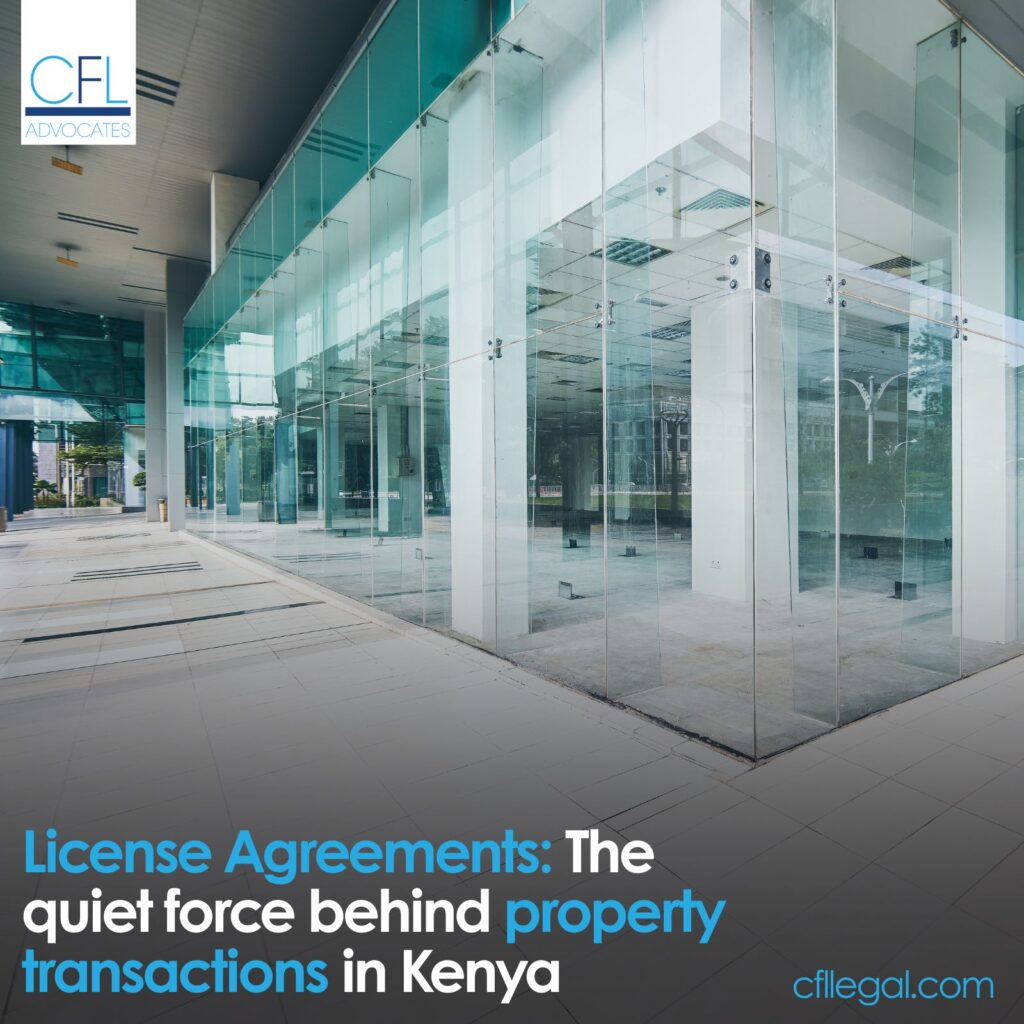
Kenya’s real estate sector is dynamic, with landlords, investors and occupiers seeking structures that balance control, flexibility and profitability. Traditionally, leases and tenancies have been the dominant models, granting occupiers enforceable rights and exclusive possession.
Increasingly, however, another tool is shaping property use: the license agreement. Though less familiar outside legal circles, licenses are becoming the preferred mechanism in commercial centres, hospitality venues, transport hubs and shared workspaces, offering agility where leases may be too rigid.
What is a License Agreement?
A license agreement is a contract in which the property owner (licensor) grants another party (licensee) permission to use the property for a specific purpose. Unlike a lease, a license does not transfer proprietary rights; it merely creates a personal right that is temporary, revocable and tied to the agreed use.
Key characteristics of License Agreements
- No proprietary interest: The licensee cannot claim ownership or tenancy rights.
- No exclusive possession: The licensor retains control while the licensee only has permission to use.
- Temporary and flexible: Licenses are typically short-term or renewable at the licensor’s discretion.
- Purpose-specific: Use is usually restricted (e.g., operating a kiosk, hosting an event, occupying a desk).
Common Applications in Kenyan Real Estate
- Commercial spaces, Shopping malls use license agreements for kiosks, ATMs, promotional stands and pop-up shops.
- Hospitality & events. Hotels, conference centres and resorts often grant licenses for temporary use of halls, gardens, or outdoor grounds for events.
- Transport Hubs. Airports, bus termini, and train stations grant licenses for food outlets, service counters, and retail stalls.
- Shared Workspaces. Co-working spaces and serviced offices prefer licenses to manage short-term users flexibly.
Advantages of license agreements
For property owners
- Flexibility: Easier to revoke compared to leases.
- Control: The owner retains possession and avoids long-term commitments.
- Maximization of space: Spaces unsuitable for leases (corridors, foyers, rooftops) can still generate income.
- Reduced legal exposure: Licensees cannot invoke statutory protections available to tenants.
For Licensees
- Low entry cost: Licenses usually require less capital compared to formal leases.
- Short-term opportunities: Suitable for startups, seasonal businesses or market-testing.
- Access to prime locations: Businesses can operate in high-traffic areas (airports, malls) without long-term commitments.
Conclusion
License agreements are a valuable legal tool in Kenya’s real estate sector. They strike a balance between flexibility and commercial opportunity, making them ideal for temporary arrangements, shared spaces and specialized uses.
However, their success depends on careful drafting and clear legal advice. Owners must structure them well to avoid creating unintended tenancies, while users should weigh the short-term benefits against the lack of long-term security.
In a market defined by change and competition, license agreements are proving to be the quiet force enabling flexibility, opportunity, and innovation in property transactions.


